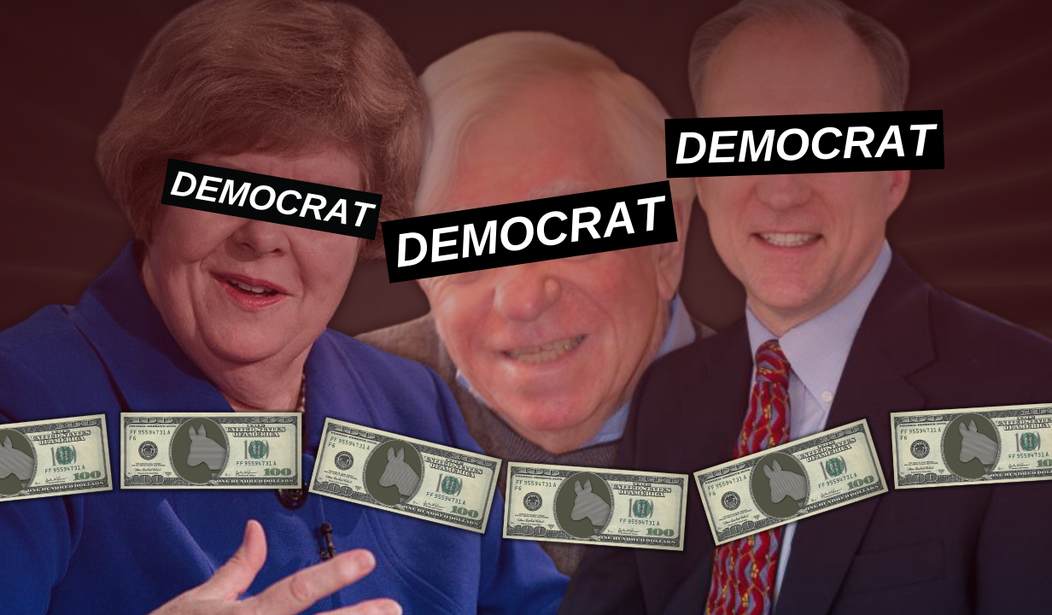Behind the refusal of the House Republican Party's so-called freedom caucus to vote for Rep. Kevin McCarthy, R-Calif., is the caucus's skepticism that he will actually "rein in government spending." I've never quite understood why all Republicans do not belong to the Freedom Caucus. If the Republican Party supports low taxes, light regulations and strong national security, why is a Freedom Caucus even necessary?
Here's the problem. In 1900, government at all three levels -- local, state and federal -- taxed Americans at about 9% of their earnings. Now, it is over 32%. As former President Ronald Reagan said: "Government's view of the economy could be summed up in a few short phrases: If it moves, tax it. If it keeps moving, regulate it. And if it stops moving, subsidize it."
The federal budget devotes about half of its spending to the so-called entitlement programs: Social Security, Medicare, Medicaid and Obamacare. Next is income security, which includes general retirement and disability insurance; federal employee retirement, disability and military retirement; unemployment compensation; housing assistance; nutrition assistance; foster care; Supplemental Security Income; and the earned income and child tax credits. They are followed, in decreasing order, by national security and interest on the debt. Combined, these programs consume almost all federal spending -- courtesy of dollars collected from taxpayers or through borrowing that ultimately must be paid back by taxpayers or through printing. This leaves a small percentage of the federal budget for so-called discretionary spending.
As to the "entitlement" portion, even Democrats over the years called the spending "unsustainable."
Recommended
Former President Barack Obama once called these programs unsustainable. In March 2013, "Politico" wrote, "(Obama) also warned that Democrats need to embrace at least some changes to unsustainable entitlement programs in order to achieve their long-term priorities."
Former President Bill Clinton, in his January 1996 State of the Union speech, said: "We know big government does not have all the answers. We know there's not a program for every problem. We have worked to give the American people a smaller, less bureaucratic government in Washington. And we have to give the American people one that lives within its means. The era of big government is over."
About Clinton's speech, Paul Light, New York University professor of public service, later wrote: "Clinton would have been much more accurate to say that the era of big government was continuing pretty much unabated. And that is precisely what the vast majority of Americans want." Exactly. Most voters don't much care about the national debt, budget deficits or whether the federal budget is balanced.
Politicians, at least those who want to win elections, practically engage in a suicide mission by criticizing these programs and spooking voters, especially seniors, who are beneficiaries or soon-to-be beneficiaries. President George W. Bush suggested allowing workers to direct a part of their Social Security contribution into an investment account to seek a better rate of return. Bush established a bipartisan commission on Social Security. Its report read: "Social Security will be strengthened if modernized to include a system of voluntary personal accounts. Personal accounts improve retirement security by facilitating wealth creation and providing participants with assets that they own and that can be inherited, rather than providing only claims to benefits that remain subject to political negotiation."
In the 2005 State of the Union Address, Bush said even Democrats warned about the precarious condition of Social Security: "During the 1990s, my predecessor, President (Bill) Clinton, spoke of increasing the retirement age. Former (Democratic) Senator John Breaux suggested discouraging early collection of Social Security benefits. The late (Democratic) Senator Daniel Patrick Moynihan recommended changing the way benefits are calculated."
But Democrats denounced Bush's attempt to "privatize Social Security." Rep. Nancy Pelosi, D-Calif., could barely restrain her glee over Bush's dangerous act of political heresy. Asked about when Democrats would offer their own plan, Pelosi said to one congressional member, "Never. Is never good enough for you?" After pressuring Bush to retreat from his plan by arguing it amounted to a cut, Pelosi called his failed attempt a political "gift."
The adage about tax hikes is equally true about budget cuts: "Don't cut me. Don't cut thee. Cut that fellow behind the tree."
Larry Elder is a bestselling author and nationally syndicated radio talk-show host. To find out more about Larry Elder, or become an "Elderado," visit www.LarryElder.com. Follow Larry on Twitter @larryelder. To read features by other Creators Syndicate writers and cartoonists, visit the Creators Syndicate webpage at www.creators.com.

























Join the conversation as a VIP Member